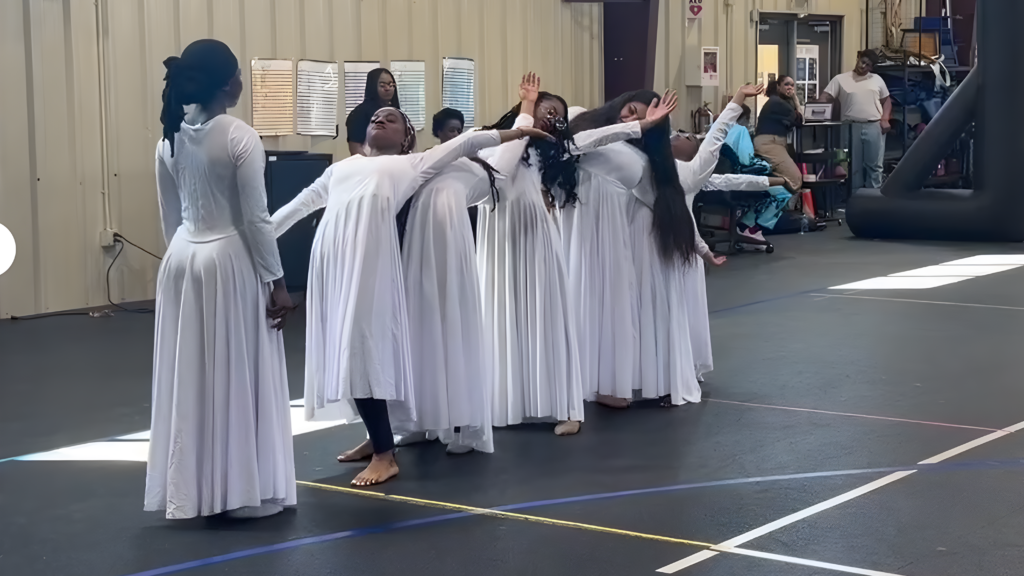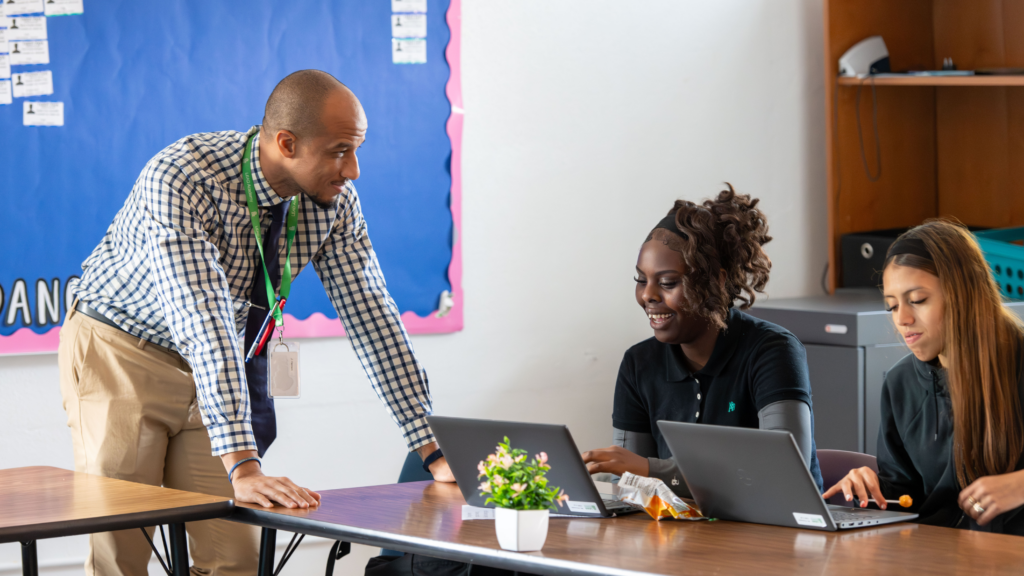WPLN: A Nashville program turns native Spanish speakers into teachers, building community and economic empowerment in the process
Voces de Nashville was created to solve a problem: Leaders say there aren’t enough bilingual voices in the city.
They’re working to help more people communicate with Nashville’s Spanish-speaking population, in settings like parent-teacher conferences and in the community at large, all while expanding job opportunities for historically marginalized women.
The organization is doing Spanish classes differently. It doesn’t use textbooks or study for big exams. Instead, students are immersed in modern conversational Spanish that’s used by native speakers right here in their community.
At a recent weeknight class at Woodbine United Methodist, students practiced expressing their likes and dislikes.
One student’s response, “A mí no me gusta trabajar mucho,” meaning “I don’t like to work very much” solicited laughter from the rest of the class.
Students also learn about culture in their courses, and words they might not get from a formal classroom, for example: What’s a “nini”?
“Ni trabaja, ni estudia,” explained Anne Moctezuma to the class. “Neither working, neither studying. Son jovenes que no hacen nada.” She says they’re generally rich kids who don’t do anything and live off their parents money. She tells the class “if they call you a ‘nini,’ it’s a bad thing.”
Building community
The big goal at Voces is helping students better connect with their Spanish-speaking neighbors. One of their first Spanish classes was with employees at LEAD Cameron Middle School, which has a large Spanish-speaking population. Social studies teacher Ashley Riddley says the courses have helped her better engage with the students in her classroom. One of her homework assignments was to interview students.
“I get to know about the heritage, not just from Mexico but from like Honduras and El Salvador and Guatemala,” Riddley says. “So just to see the similarities and differences is like really nice to know.”
Riddley says another unique aspect of Voces is that her instructor is the mother of one of her former students. “It’s like nice just to see a parent, you know, being so involved and being willing to even teach the teachers.”
That Spanish teacher she’s talking about is Beatriz Ordaz Ramirez, one of the founders of Voces.
“A mí se me hace muy bonito poder compartir mi cultura con los estudiantes, porque siento que eso nos hace entender un poco más.”
She says it makes her feel good to share her culture with the students, and that it helps them understand each other better.
Economic empowerment
That’s another thing that distinguishes Voces de Nashville from some other programs — the teachers.
All the teachers in Voces are native Spanish speakers. They’re recruited to go through a training, and at the end they can be instructors. But they aren’t just becoming employees. They’re owners in a cooperative and get a direct say in how the company moves forward.
That makes the program a tool for economic empowerment, says operations chair Vanessa Dafne. She says the women they train often have limited options for jobs, like construction and housekeeping. She says Voces offers an opportunity for women to increase their pay and quality of life.
“Esta cooperativa puede brindar para ellas otro otro estilo de vida, no? O mejorar su calidad de vida, mejorar sus ingresos con sus familias y tener otras oportunidades.”
One of the teachers, Yanet Rodríguez, says the program gets rid of some barriers associated with other jobs like costly education or certain personal documents. She says regardless of skin color or legal status, members of this co-op are equal partners.
“No se mide ni por color ni por un estatus legal, son parejos,” Rodríguez says “Aquí todos somos iguales.”
On top of all that, Rodriguez is proud of earning her certificate, and so are her kids. She says it has encouraged her own children to work hard in school. “Y cuando mis hijos vieron mi certificado, se sintieron más orgullosos y ellos también están motivados para que le echen ganas de la escuela.”
Back in the Voces de Nashville night class at Woodbine United Methodist, Rodriguez is teaching her students how to use verbs similar to “gustar,” which means “to like.” They explain what they love and what interests them about Nashville. As she goes around the classroom, asking each student to respond, a common theme pops up: Her students are eager to learn more about the many cultures and communities of Nashville.
How to connect
Those interested in taking Spanish classes or native speakers who want to become instructors can find more information at Voces de Nashville’s website.




